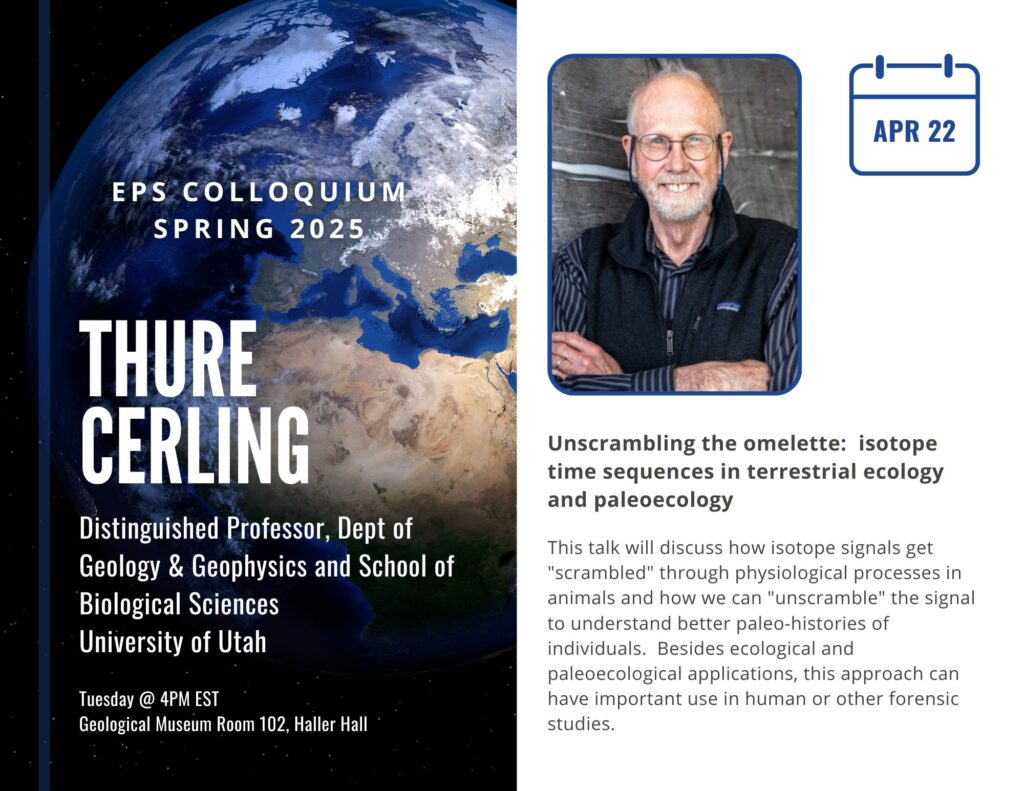EPS Colloquium – Thure Cerling, University of Utah
Unscrambling the omelette: isotope time sequences in terrestrial ecology and paleoecology
This talk will discuss how isotope signals get “scrambled” through physiological processes in animals and how we can “unscramble” the signal to understand better paleo-histories of individuals. Besides ecological and paleoecological applications, this approach can have important use in human or other forensic studies.
To be added to the EPS colloquium mailing list, please contact Caroline Carr at carolinecarr@fas.harvard.edu

Thure Cerling is a biogeochemist at the University of Utah. His B.S. degree is from Iowa State University where he majored in Chemistry and Geology; his M.S. degree in Geology is also from Iowa State University; his PhD is from the University of California–Berkeley in Geology. His work primarily concerns the use of isotopes to study biological and geological processes occurring near the Earth’s surface. He has done extensive field work in North America, Kenya, and Pakistan, and other geological and biological studies in Argentina, Australia, Western Europe, and Antarctica. These studies include cosmic-ray produced isotopes to study geomorphology, chemistry of lakes and lake sediments, stable isotope studies of diet, use of fossil soils to understand ancient climates and ecology, studies of early hominin environments in Africa, wildlife ecology, and isotope forensics. He served for 9 years on the US Nuclear Waste Technical Review Board. He is a member of the US National Academy of Sciences.

